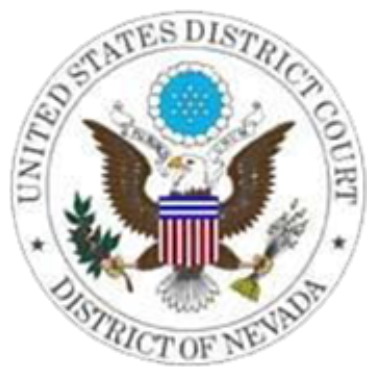Related Research Articles

Tribal sovereignty in the United States is the concept of the inherent authority of indigenous tribes to govern themselves within the borders of the United States. The U.S. federal government recognizes tribal nations as "domestic dependent nations" and has established a number of laws attempting to clarify the relationship between the federal, state, and tribal governments.

The Nonintercourse Act is the collective name given to six statutes passed by the Congress in 1790, 1793, 1796, 1799, 1802, and 1834 to set Amerindian boundaries of reservations. The various Acts also regulate commerce between Americans and Native Americans. The most notable provisions of the Act regulate the inalienability of aboriginal title in the United States, a continuing source of litigation for almost 200 years. The prohibition on purchases of Indian lands without the approval of the federal government has its origins in the Royal Proclamation of 1763 and the Confederation Congress Proclamation of 1783.
Irwin Allen Schiff was an American libertarian and tax resistance advocate known for writing and promoting literature in which he argued that the income tax in the United States is illegal and unconstitutional. Judges in several civil and criminal cases ruled in favor of the federal government and against Schiff. As a result of these judicial rulings Schiff was in a hospital prison serving a sentence of 162 months at the time of his death at the age of 87. The Federal Bureau of Prisons reported that Schiff died on October 16, 2015.
BLIPS is an acronym for Bond Linked Issue Premium Structure, or Bond Linked Investment Premium Strategy. It is a type of tax shelter involving investors who take out bank loans that the government considers illegitimate. These loans are then shifted to partnerships to claim tax losses.
Accountant–client privilege is a confidentiality privilege, or more precisely, a group of privileges, available in American federal and state law. Accountant–client privileges may be classified in two categories: evidentiary privileges and non-evidentiary privileges.
Jon Ormond Newman is a Senior United States Circuit Judge of the United States Court of Appeals for the Second Circuit.
Tax protesters in the United States have advanced a number of arguments asserting that the assessment and collection of the federal income tax violates statutes enacted by the United States Congress and signed into law by the President. Such arguments generally claim that certain statutes fail to create a duty to pay taxes, that such statutes do not impose the income tax on wages or other types of income claimed by the tax protesters, or that provisions within a given statute exempt the tax protesters from a duty to pay.

Cesarini v. United States, 296 F. Supp. 3, is a historic case decided by the U.S. District Court for the Northern District of Ohio, where the court ruled that treasure trove property is included in gross income for the tax year when it was discovered. The case is frequently cited in American law school textbooks as an example of the nuances of income taxation.

In United States law, a federal enclave is a parcel of federal property within a state that is under the "Special Maritime and Territorial Jurisdiction of the United States". As of 1960, the year of the latest comprehensive inquiry, 7% of federal property had enclave status, of which 57% was under "concurrent" state jurisdiction. The remaining 43%, on which some state laws do not apply, is scattered almost at random throughout the United States. In 1960, there were about 5,000 enclaves, with about one million people living on them. These numbers would undoubtedly be lower today because many of these areas were military bases that have been closed and transferred out of federal ownership.

John Doe v. Alberto R. Gonzales was a case in which the American Civil Liberties Union (ACLU), Library Connection, and several then-pseudonymous librarians, challenged Section 2709 of the Patriot Act; it was consolidated on appeal with a separate case, Doe v. Ashcroft.
Coit v. Green, 404 U.S. 997 (1971), was a case in which the United States Supreme Court affirmed a decision that a private school which practiced racial discrimination could not be eligible for a tax exemption.

Baxter v. United States, 633 F. Supp. 912, was a federal tax refund case, decided in 1986, regarding the U.S. federal income tax treatment of the gambling income of a professional gambler. Because of this case, gambling winnings in the United States can in certain cases be treated as business income for federal income tax purposes. This means that in some cases expenses and losses can be deducted from gambling winnings in arriving at the net earnings from self-employment, and that winnings can be placed into retirement funds.
Denise Louise Cote is a Senior United States District Judge of the United States District Court for the Southern District of New York.
Charles C. Lovell is a Senior United States District Judge of the United States District Court for the District of Montana.
Tax protesters in the United States advance a number of constitutional arguments asserting that the imposition, assessment and collection of the federal income tax violates the United States Constitution. These kinds of arguments, though related to, are distinguished from statutory and administrative arguments, which presuppose the constitutionality of the income tax, as well as from general conspiracy arguments, which are based upon the proposition that the three branches of the federal government are involved together in a deliberate, on-going campaign of deception for the purpose of defrauding individuals or entities of their wealth or profits. Although constitutional challenges to U.S. tax laws are frequently directed towards the validity and effect of the Sixteenth Amendment, assertions that the income tax violates various other provisions of the Constitution have been made as well.

United States federal probation and supervised release are imposed at sentencing. The difference between probation and supervised release is that the former is imposed as a substitute for imprisonment, or in addition to home detention, while the latter is imposed in addition to imprisonment. Probation and supervised release are both administered by the U.S. Probation and Pretrial Services System. Federal probation has existed since 1909, while supervised release has only existed since 1987, when it replaced federal parole as a means for imposing supervision on release from prison.
The step transaction doctrine is a judicial doctrine in the United States that combines a series of formally separate steps, resulting in tax treatment as a single integrated event. The doctrine is often used in combination with other doctrines, such as substance over form. The doctrine is applied to prevent tax abuse, such as tax shelters or bailing assets out of a corporation. The step transaction doctrine originated from a common law principle in Gregory v. Helvering, 293 U.S. 465 (1935), which allowed the court to recharacterize a tax-motivated transaction.
Meyer v. Grant, 486 U.S. 414 (1988), was an important decision by the United States Supreme Court on paid petition circulation. Colorado was one of several states with a process for citizens to propose initiatives for the ballot, which if passed became law. One of the requirements was to get the signatures of a significant number of registered Colorado electors. Colorado prohibited initiative sponsors from paying for the circulation of these petitions. The state argued this was necessary to "protect[...] the integrity of the initiative."

Hearst Corp. v. Goldberger was a case out of the U.S. District Court for the Southern District of New York in which the court developed a reasoned framework to determine the proper exercise of personal jurisdiction in cases involving activity in cyberspace. The court determined that it lacked jurisdiction over an out-of-state defendant whose website was accessible to New York residents.
Czarnik v. Illumina Inc., 437 F. Supp. 2d 252, was a United States patent law case heard before the United States District Court for the District of Delaware. In its ruling the district court was the first court to hold that reputational harm could be sufficient to establish standing in an action for correction of named inventor under 35 U.S.C. § 256. That ruling led to a split among district courts that has yet to be definitively resolved.
References
- 1 2 Long Term Capital Holdings v. United States, 330F. Supp. 2d122 (D. Conn.2004).